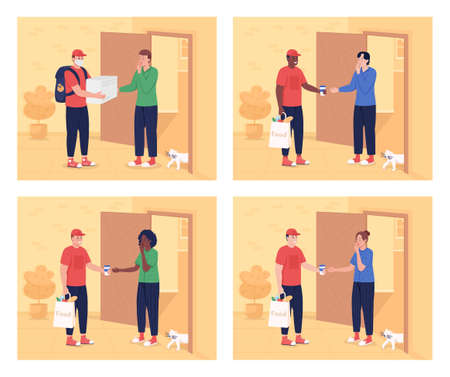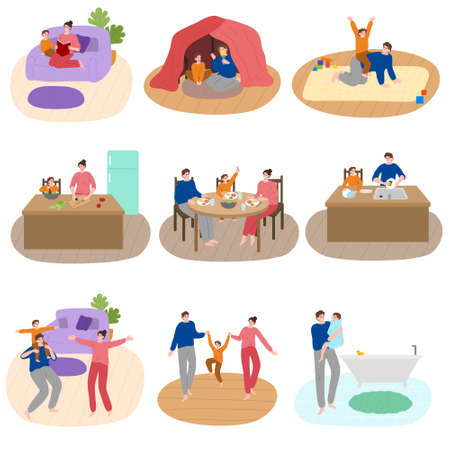1. The Benefits of Adopting a Senior Pet
Senior pets often come with established temperaments, making it easier to find a good match. Unlike younger animals that require extensive training and socialization, older pets usually have a well-developed personality, allowing potential adopters to choose a pet that fits their lifestyle more seamlessly.
They Are Typically House-Trained
One of the biggest advantages of adopting a senior pet is that many are already house-trained. This means fewer accidents in the home and less time spent on basic training. For busy individuals or families who may not have the time to train a young pet, this can be a huge benefit.
Less Supervision and Lower Energy Levels
Unlike puppies and kittens that require constant attention and supervision, senior pets tend to be more independent. They are generally past the destructive chewing phase and are content with a relaxed routine. If youre looking for a calm companion rather than an energetic ball of energy, an older pet might be the perfect fit.
A Perfect Companion for a Loving Home
Senior pets make wonderful companions for those seeking a relaxed and affectionate pet. They are often grateful for a second chance at life and form deep bonds with their adopters. Whether youre a retiree looking for companionship or someone with a quiet home environment, an older pet can bring warmth and love into your life.
Comparison: Senior Pets vs. Younger Pets
| Aspect | Senior Pets | Younger Pets |
|---|---|---|
| Training Required | Minimal (usually house-trained) | Extensive (potty training, obedience training) |
| Energy Level | Lower, enjoys relaxation | High energy, requires frequent exercise |
| Supervision Needed | Less (already well-behaved) | A lot (prone to mischief) |
| Lifespan Consideration | Shorter, but still fulfilling years left | Potentially longer commitment |
| Bonding Potential | Deep emotional connections due to gratitude | Takes time to develop trust and behavior |
A Rewarding Experience
The joy of giving an older pet a loving home is immeasurable. Senior pets have so much love to offer and often adapt quickly to new environments. By choosing to adopt a senior pet, you’re not just gaining a companion—you’re giving them a chance at happiness in their golden years.
2. Dispelling Myths About Older Pets
Many people believe that senior pets are less trainable or have too many health issues, but the reality is that they can still learn new habits and offer years of companionship with proper care. Lets take a closer look at some common myths and the truth behind them.
Myth: Older Pets Cant Learn New Tricks
Some assume that senior pets are set in their ways and unable to adapt to new environments or training. However, older pets can still learn commands, routines, and even fun tricks! In fact, they often have longer attention spans compared to younger animals, making training easier.
Myth: Senior Pets Have Too Many Health Issues
While older pets may require more veterinary care than younger ones, many senior animals are in good health with proper nutrition and regular check-ups. Plus, adopting a senior pet often means knowing their medical history upfront, so there are fewer surprises.
Common Myths vs. Reality
| Myth | Reality |
|---|---|
| Older pets cant be trained. | Senior pets can learn new habits and commands with patience and positive reinforcement. |
| Senior pets are not active. | Many older pets still enjoy playtime and walks; they just need exercise suited to their age. |
| Aging pets always have expensive medical needs. | A senior pets medical needs vary, and many are healthy with proper care. |
| You won’t have much time with a senior pet. | Seniors can live for many more happy years with love and care. |
The Benefits of Adopting a Senior Pet
Shelters often provide detailed information about a senior pet’s personality, behavior, and medical history, making it easier to find a great match for your lifestyle. Additionally, many older pets are already house-trained and socialized, reducing the time needed for adjustment.
A Rewarding Experience
The love and gratitude from an adopted senior pet can be incredibly fulfilling. They understand when they’ve been given a second chance, forming deep bonds with their new families. If youre considering pet adoption, dont overlook the incredible benefits of welcoming a senior pet into your home!

3. How Senior Pets Can Enrich Your Life
Older pets often form deep bonds with their adopters, providing companionship, emotional support, and a sense of fulfillment in giving them a loving home during their golden years. Unlike younger animals that may still be learning social behaviors, senior pets are often calmer and more in tune with human emotions, making them wonderful companions.
Unmatched Companionship
Senior pets have a special way of connecting with their owners. They appreciate the love and care they receive and tend to show deep gratitude through affection and loyalty. Whether youre watching TV, reading a book, or simply relaxing at home, an older pet will be right by your side, offering comfort and companionship.
Emotional Support and Stress Relief
The presence of a senior pet can bring emotional stability and reduce stress. Studies have shown that spending time with pets can lower blood pressure, decrease anxiety, and improve overall mental health. For individuals dealing with loneliness or stress, adopting an older pet can provide much-needed emotional support.
A Sense of Purpose
Caring for a senior pet gives you a meaningful responsibility. Knowing that you’re providing a loving home for an animal in need creates a sense of fulfillment and purpose. Many adopters find joy in giving these pets the best years of their lives.
Why Senior Pets Are Great for Different Lifestyles
| Lifestyle | How Senior Pets Fit In |
|---|---|
| Busy Professionals | Older pets are typically lower energy and require less training, making them easier to care for. |
| Seniors | A calm companion who provides comfort without the high-energy demands of a younger pet. |
| Families | A great choice for households looking for a well-mannered pet that’s already trained. |
| First-Time Pet Owners | Easier to manage since they usually have established routines and temperaments. |
A Rewarding Experience
The bond formed with a senior pet is truly special. They recognize the second chance they’ve been given and respond with unwavering love and gratitude. By adopting an older pet, you’re not just changing their life—you’re enriching your own in ways you never imagined.
4. Preparing Your Home for a Senior Pet
Bringing home a senior pet is a wonderful decision, but it’s important to make sure your home is set up to accommodate their needs. Older pets may have mobility issues, joint pain, or vision impairments, so small modifications can make a big difference in their comfort and safety.
Creating a Comfortable Resting Area
Senior pets need a soft and supportive place to rest. Investing in an orthopedic bed can help relieve pressure on their joints and provide much-needed comfort.
| Feature | Benefit |
|---|---|
| Orthopedic Memory Foam Bed | Supports aging joints and reduces pain |
| Heated Pet Bed | Keeps them warm and soothes aching muscles |
| Non-Slip Mat Under Bedding | Prevents slipping when getting in and out of bed |
Making Everyday Activities Easier
Your senior pet may not be as agile as they once were, so adjusting your home to accommodate their needs can improve their quality of life.
- Litter Box Placement: For senior cats, use a litter box with low sides for easy entry and exit.
- Food and Water Accessibility: Place bowls at an elevated height to reduce neck strain.
- Paw-Friendly Flooring: Use rugs or carpet runners on slippery floors to prevent falls.
- Pain-Free Stairs: Consider adding pet ramps if they struggle with stairs or jumping onto furniture.
A Safe and Senior-Friendly Environment
Slight modifications to your home can prevent accidents and ensure your pet feels secure.
- Adequate Lighting: Keep hallways and common areas well-lit for pets with vision loss.
- No Clutter: Avoid obstacles that could cause tripping or confusion.
- Barricade Dangerous Areas: Use baby gates to block off stairs or unsafe spaces.
A little preparation goes a long way in making your senior pet feel at home. With just a few adjustments, you can create a safe, cozy environment where they can enjoy their golden years comfortably.
5. Caring for a Senior Pet: Health and Wellness Tips
Adopting a senior pet comes with unique responsibilities, especially when it comes to their health and wellness. Proper veterinary care, a balanced diet, and age-appropriate exercise are crucial to maintaining a senior pet’s health and quality of life. Here are some key tips to ensure your senior pet stays happy and comfortable in their golden years.
Regular Veterinary Checkups
Senior pets require more frequent vet visits compared to younger animals. Routine checkups help detect potential health issues early, allowing for better management and treatment.
Recommended Veterinary Schedule
| Pet Age | Vet Visit Frequency |
|---|---|
| Under 7 years | Once a year |
| 7+ years (Senior) | Every 6 months |
| Pets with health conditions | As recommended by the vet |
A Balanced Diet for Senior Pets
A well-balanced diet plays a major role in keeping your senior pet healthy. Their metabolism slows down with age, so their nutritional needs change.
Nutritional Needs Based on Pet Type
| Pet Type | Nutritional Focus |
|---|---|
| Seniors Dogs | High-quality protein, joint supplements, easy-to-digest food |
| Seniors Cats | Taurine-rich food, hydration-focused diet, kidney support formulas |
The Right Amount of Exercise
Exercise is still important for older pets but should be adjusted to match their physical abilities. Gentle activities help maintain mobility while preventing strain or injury.
Exercise Recommendations by Age
| Age Range | Suggested Activities |
|---|---|
| 7-10 years | Mild walks, interactive toys, light playtime |
| 11+ years | Short strolls, stretching exercises, mental stimulation games |
Pain Management and Comfort
Aging pets may experience joint pain or arthritis. Providing soft bedding, ramps for easier access to furniture, and orthopedic support can improve their quality of life.
Mental Stimulation for Cognitive Health
Cognitive decline can happen as pets age. Puzzle toys, gentle training exercises, and regular engagement help keep their minds sharp.
Caring for a senior pet requires attention to their changing needs, but with proper veterinary care, nutrition, and exercise, you can ensure they live out their golden years happily by your side.


